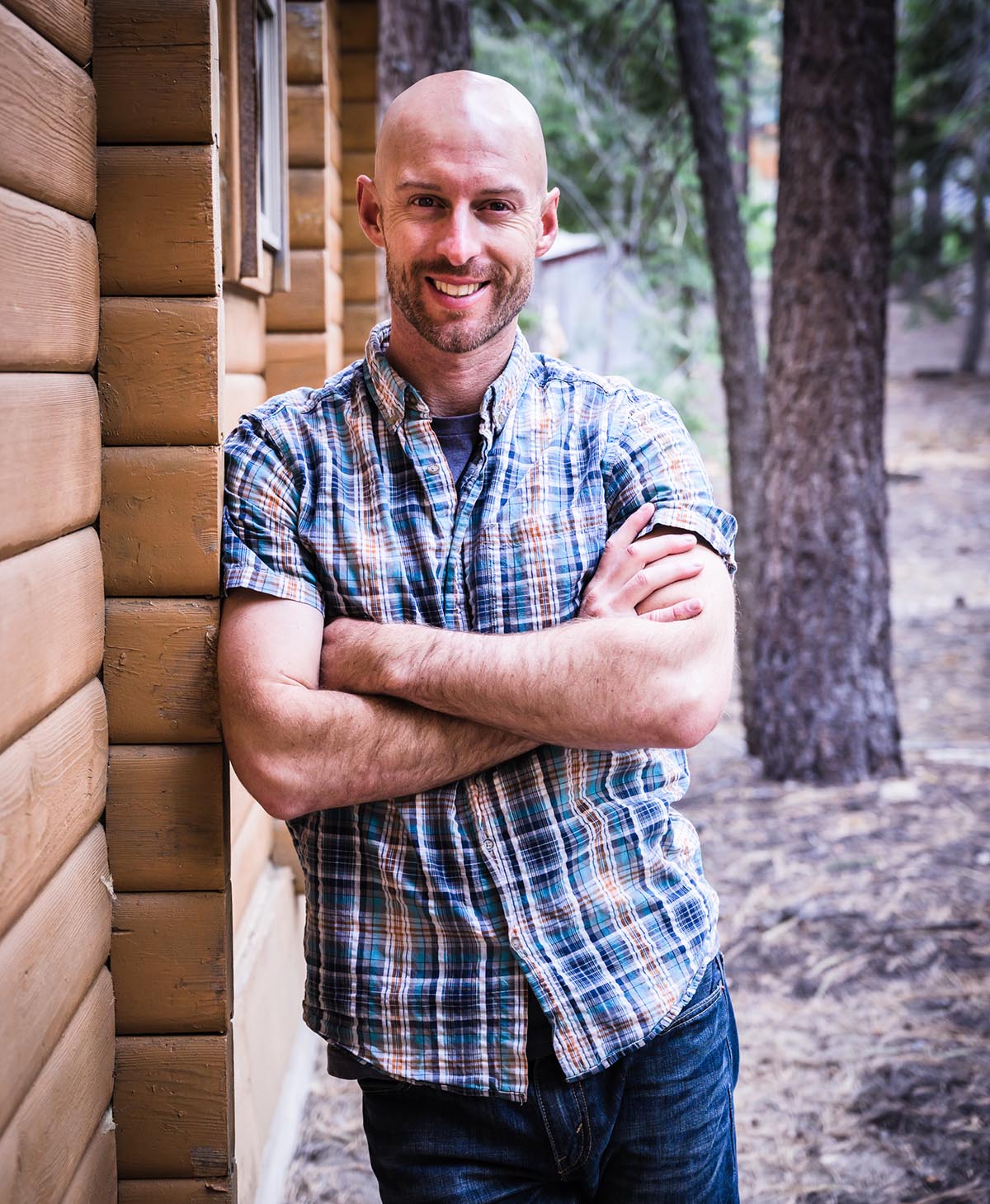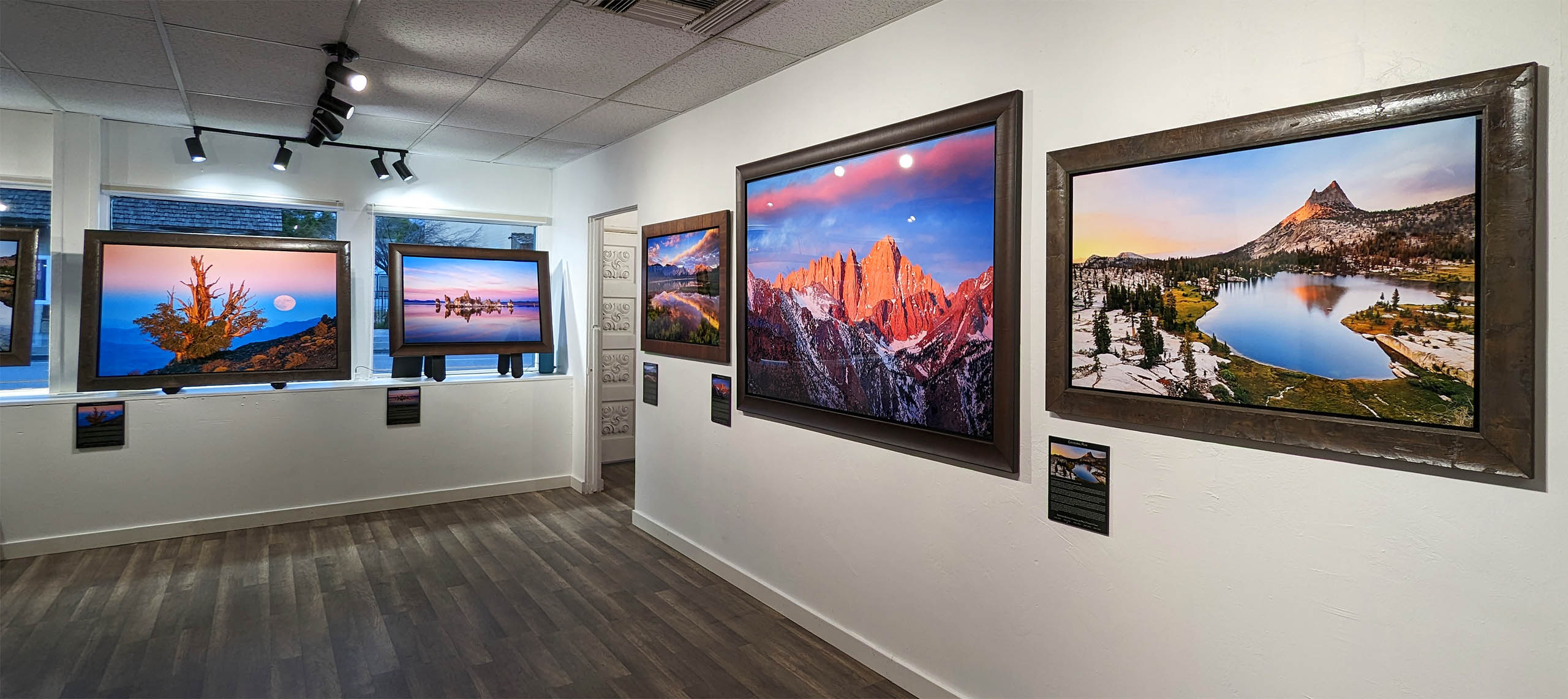July 17 - 20, 2024 (Thursday - Sunday)
August 15 - 17, 2024 (Friday - Sunday)
The Mt Whitney Gallery
126 N Main Street
Lone Pine, California
July, 4 days - $1195
August, 3 days - $795
Class limited to 7 students.
In this workshop we will cover the beginner and intermediate astrophotography skills necessary to give you confidence in creating stunning Milky Way landscape photos. Join professional landscape photographer Joshua Cripps in the breathtaking Eastern Sierra to photograph the Milky Way in conjunction with the beautiful landscapes of this unique area. Lone Pine will be our base for this class, and we will explore the Alabama Hills as well as the surrounding landscapes in search of our astro photos.
This Eastern Sierra Milky Way photography workshop is comprised of two classroom sessions, two field excursions, and two processing sessions. In the classroom we will learn everything that goes into making beautiful Milky Way and star photographs, including the required gear, using the PhotoPills App, artistic and technical approaches to shooting the stars, understanding the Milky Way’s movement, planning the shot, problem solving, and best practices. We will work together as a group to plan our shots, then go into the field to bring them to life!
During the class we will have two field sessions to photograph the Milky Way in alignment with the wonderful natural features of the area, such as Mobius Arch, Boot Arch and the other amazing formations of the Alabama Hills. All our shoots will take place after sunset, late into the night to allow for ample opportunities for shooting.
The classroom and post processing sessions for this class take place at The Mount Whitney Gallery in downtown Lone Pine, California.
This class is aimed at beginner and intermediate photographers. Specifically, it’s for anyone who wants to become confident creating beautiful Milky Way and night sky photographs.
This class does NOT cover:
Joshua Cripps – Professional Photographer and Guide
Josh is an acclaimed landscape photographer and educator from Lone Pine, California, where he owns and runs The Mount Whitney Gallery. He gives presentations for companies like Nikon and leads exciting photo tours around the world. Josh’s Milky Way photos were featured by Nikon in the global launch campaign of the Nikon D750.
This Milky Way photography workshop meets in Lone Pine, California, 3-4 hours north of Los Angeles, 4 hours west of Las Vegas, or 1 hour south of Bishop. The class location is:
You are responsible for your own transportation during this class, but we will organize carpools for the excursions.
Lodging and meals are up to you. Lone Pine has a wide array of dining and lodging options, from inexpensive to high end.
First Day
Arrive at the Whitney Gallery after lunch (the exact time will be sent to you in advance of the class).
Middle Day(s)
Last Day
Typically Lone Pine in Summer is clear with nighttime temperatures in the 60s – 80s, making it extremely comfortable for shooting astro late into the night.
This area has some of the darkest skies in the US, and having stunning star visibility is almost assured. However, there is always a possibility of thunderstorm or weather. We make no guarantees regarding clouds, clear skies, rain, sun, or Milky Way visibility. No refunds will be given in the event the weather prevents us from photographing the stars.
We recommend bringing multiple layers of non-cotton clothing, like Merino wool, fleece, or synthetic fibers. Specifically you should bring:
We take pains to ensure our activities are 100% above board. We obtain all the necessary permissions, certifications, and insurance required in order conduct our tours.
We are also strong advocates of Leave No Trace (LNT) wilderness ethics. We teach responsible photography practices and never sacrifice the environment for the sake of a photo. Our goal is to leave our tour locations in better shape than the way we found them.
Payments are refundable up to two weeks before the workshop, less a $100 administrative fee.
If we cancel this workshop due to unforeseen circumstances, we will refund your tuition or transfer it to another class.
Weather Policy
We make no guarantees regarding clouds, clear skies, rain, sun, or Milky Way visibility. Because we plan to photograph no matter what the conditions are, no refunds will be given in the event weather prevents us from photographing the Milky Way.
We do not currently have any COVID-19 requirements. That being said, if you feel sick before the class, please stay home and let us know. We will transfer your registration to another class of your choosing.
This policy will be updated as CDC, WHO, Federal, and state guidelines change.

Joshua Cripps is a renowned landscape photographer who has garnered worldwide acclaim for his breathtaking images of our planet’s wild places. His photos have been published by the likes of National Geographic, NASA, CNN, BBC, and Nikon Global.

The Mt. Whitney Gallery was founded in 2023 by Joshua Cripps as a way to share his passion stunning landscapes of the Sierra Nevada and beyond.
Set at the foot of the breathtaking Sierra with a view of the range’s highest peaks, the gallery features large format, museum-caliber fine art prints of Josh’s signature photographs.
Course Login | Results Disclaimer | Terms and Conditions | Privacy Policy
© Copyright – Joshua Cripps Photography
